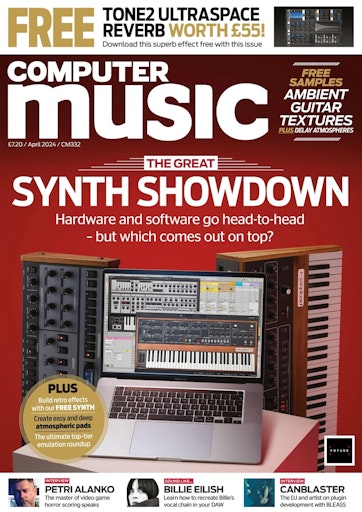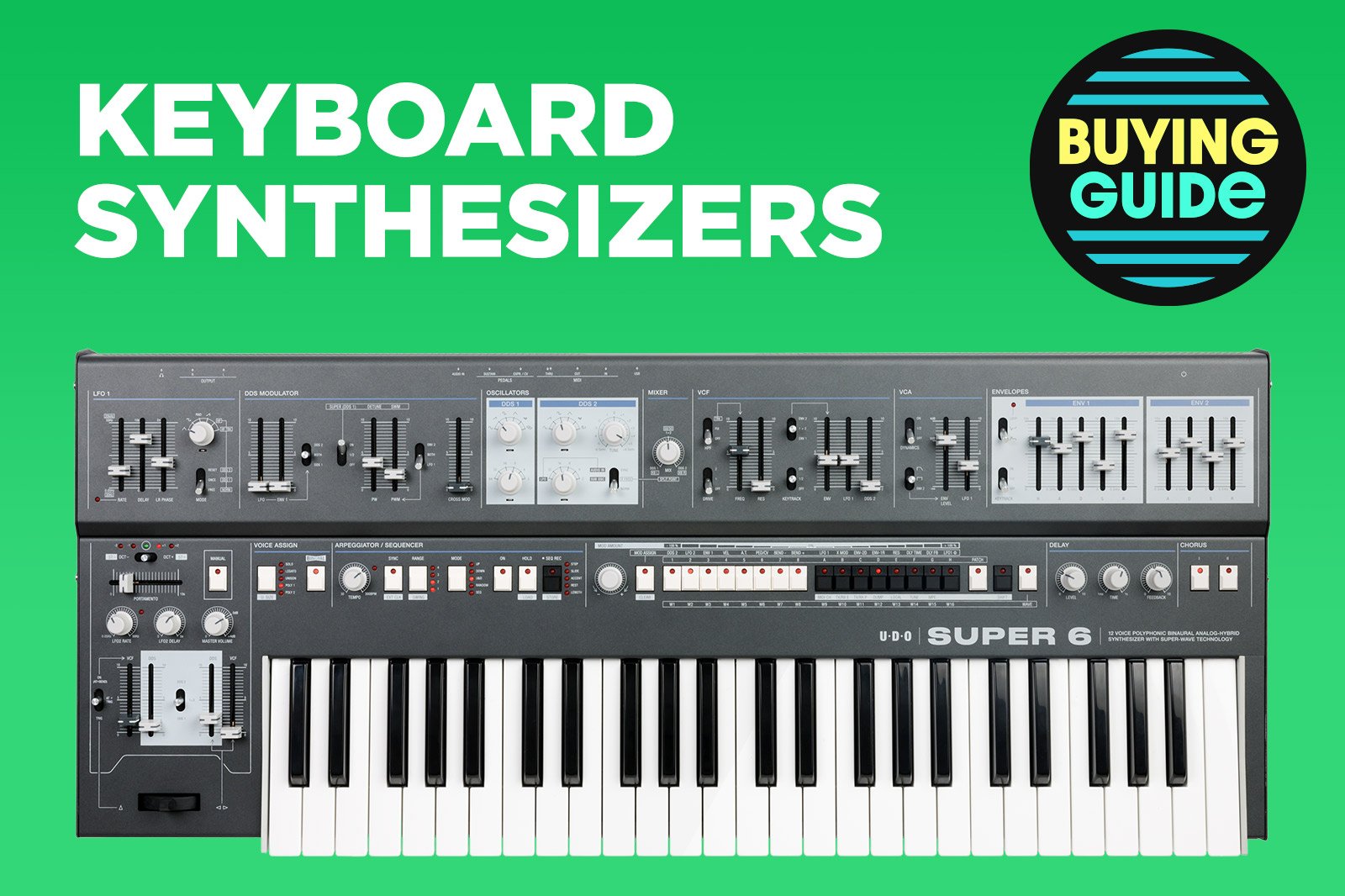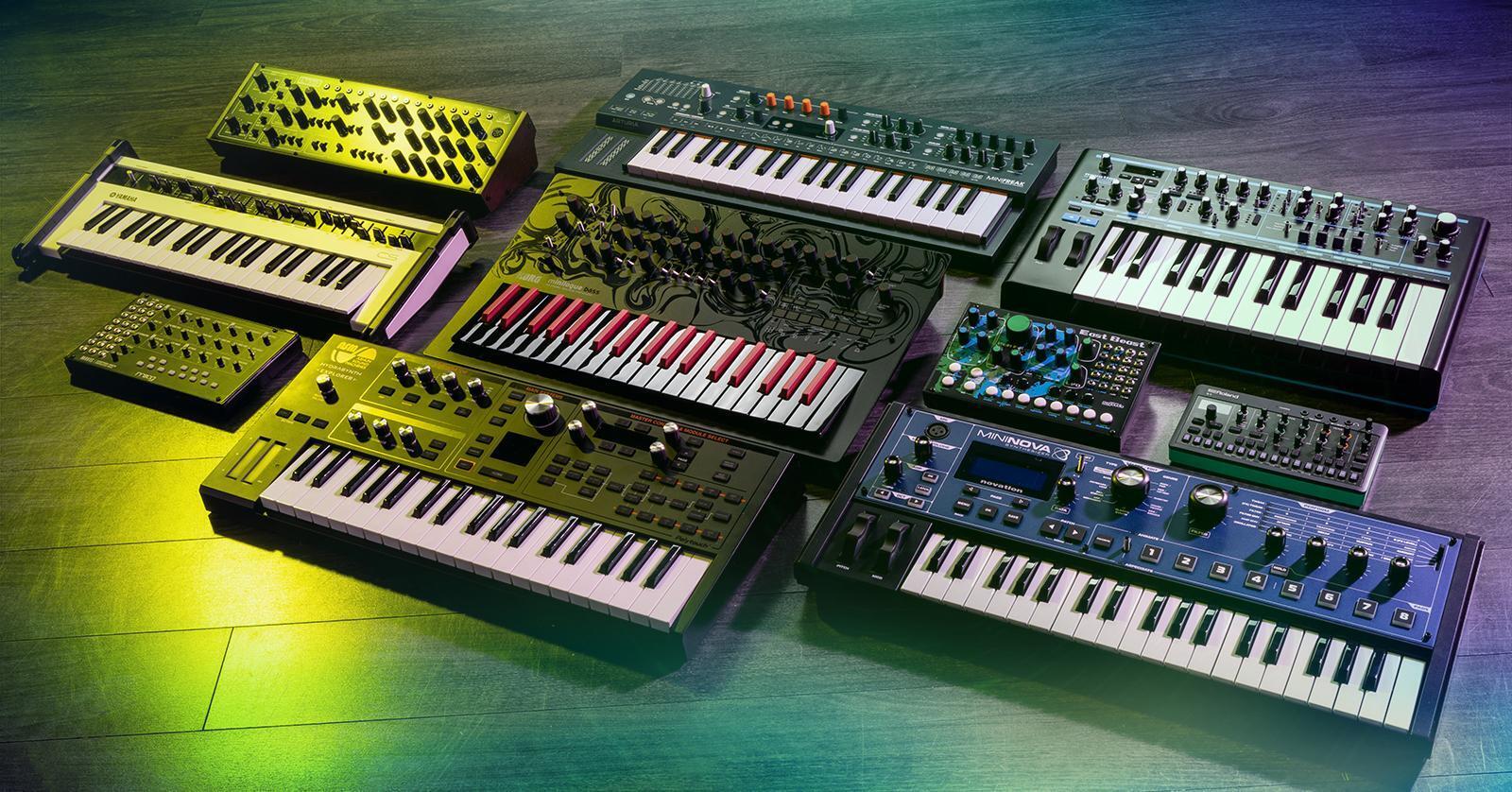The best synths for beginners are the Korg Minilogue and Arturia Microbrute, offering affordability and versatility. For aspiring musicians venturing into the world of synthesizers, choosing the right instrument can be a daunting task.
The Korg Minilogue stands out for its user-friendly interface and rich sound capabilities, making it an ideal choice for newcomers seeking a versatile and budget-friendly option. On the other hand, the Arturia Microbrute’s compact design and hands-on controls provide an intuitive playing experience, perfect for beginners looking to dive into analog synthesis.
Both synths offer a wide range of creative possibilities, making them excellent introductory instruments for those exploring the exciting realm of electronic music production.

Credit: pocketmags.com
The Basics Of Synthesizers
The Basics of Synthesizers: Synthesizers are electronic musical instruments that generate and manipulate audio signals to produce sound. For beginners, understanding the basics of synthesizers is essential to kickstart their music production journey.
Types Of Synthesizers
- Analog Synthesizers
- Virtual Analog Synthesizers
- FM Synthesizers
- Granular Synthesizers
- Sample-Based Synthesizers
Components Of A Synthesizer
- Oscillators: Generate sound waves
- Filters: Shape the tone of the sound
- Amplifiers: Control the volume of the sound
- Modulators: Add movement and dynamics to the sound
- Envelopes: Control how sounds change over time
- LFOs: Create rhythmic modulation effects
Key Features To Look For
Looking for the best synths for beginners? Key features to consider include ease of use, portability, versatile sound options, and affordable pricing. Choose a synth that offers user-friendly controls, intuitive interface, and built-in tutorials for an ideal learning experience.
User-friendly Interface
Key Features to Look For: Synths with intuitive controls and clear labeling facilitate easier learning for beginners.
Built-in Tutorials And Guides
Synths that offer tutorials and guides within the interface can help new users grasp concepts quickly. A beginner-friendly interface is essential for those starting out in the world of synthesis. Look for synths that have clearly labeled controls and a user-friendly design. Built-in tutorials and guides can be beneficial for beginners to learn the basics of synthesis. Choosing a synth with interactive tutorials can enhance the learning experience for newcomers. Having access to educational resources directly on the synth can expedite the learning process. Ensure the synth you select offers a user-friendly interface and helpful guidance for beginners.
Top Synthesizers For Beginners
Start of the blog post section about Top Synthesizers for Beginners
Searching for the perfect synthesizer to kick start your music production journey? Look no further! We have compiled a list of top-notch synthesizers that are ideal for beginners. Whether you are an aspiring musician or a hobbyist, these synthesizers will provide you with an impressive range of features without breaking the bank. Let’s dive into the world of synthesizers for beginners and discover the affordable options and best value for money choices.
Affordable Options
Affordable Options
If you are on a tight budget, there are synthesizers that offer remarkable features at budget-friendly prices. Take a look at these standout options:
- Korg Volca Keys Analog Synthesizer: Compact and versatile, this synthesizer packs a punch with its affordable price tag.
- Arturia MicroBrute Analog Synthesizer: Don’t let its size fool you; this synthesizer is a powerhouse of sonic possibilities, perfect for beginners.
Best Value for Money
Best Value For Money
When it comes to getting the best value for your money, these synthesizers deliver exceptional quality without breaking the bank:
- Behringer DeepMind 12: With its impressive array of features and affordable price point, this synthesizer offers exceptional value for beginners.
- Yamaha Reface CS Synthesizer: Compact, portable, and packed with outstanding sound quality, this synthesizer provides an unmatched price-to-performance ratio.

Credit: www.perfectcircuit.com
Learning Resources
If you’re a beginner looking to learn how to use synths, having access to the right learning resources is essential. These resources can help you understand the fundamentals of synthesis, discover new techniques, and connect with a community of like-minded individuals. Below, we’ve compiled a list of some of the best learning resources for beginners.
Online Tutorials
Online tutorials offer a great way to learn how to use synths from the comfort of your own home. From basic tutorials that cover the essentials to more advanced lessons that dive into specific topics, there’s something for every level of skill and interest. Some popular websites that offer a wide range of synth tutorials include:
- Synthtopia: Offers a vast collection of tutorials, covering everything from basic synthesis concepts to advanced sound design techniques.
- YouTube: A treasure trove of synth tutorials, YouTube channels like “SynthHacker” and “Loopop” provide detailed walkthroughs and tips.
- Sound on Sound: Features an extensive library of tutorials, articles, and step-by-step guides for synth enthusiasts of all levels.
Community Forums And Groups
Being a part of a community of synth enthusiasts can greatly enhance your learning experience. Community forums and groups offer a platform to ask questions, seek advice, and share your own experiences. Here are some notable online communities for synth beginners:
- Reddit: The subreddit r/synthesizers is a lively community where beginners and experts alike come together to discuss everything synth-related.
- Gearslutz: This popular forum not only features discussions on synths but covers a wide range of music gear topics, making it a valuable resource.
- Facebook Groups: Groups like “Synth Students” and “Synth Explorers” provide a friendly and supportive environment for beginners to learn and grow.
Tips For Mastering Synthesizers
Discover the top synthesizers suited for beginners to hone their skills. Dive into the world of music production with user-friendly synths that offer a seamless learning experience. Elevate your sound and unlock your creativity with these beginner-friendly instruments.
Practice Regularly
Your journey to mastering synthesizers begins with regular practice. Just like any musical instrument, the more time you spend playing and experimenting, the better you’ll become. Dedicate a consistent schedule each day to sit down and practice your synth skills. This will help you develop muscle memory and improve your understanding of different sound combinations.
Start with simple exercises to build your foundation. Begin by playing scales, chords, and arpeggios to get comfortable with the keyboard. As you progress, challenge yourself with more complex melodies and harmonies. Remember, practice makes perfect!
Experiment With Sound Design
One of the most exciting aspects of synthesizers is the ability to design unique and unconventional sounds. Don’t be afraid to step outside traditional boundaries and experiment with sound design. By exploring different waveforms, filters, envelopes, and modulation options, you can create your signature sound.
Start by experimenting with basic parameters like oscillators, filters, and envelopes. Adjust the cutoff frequency, resonance, and attack/release times to shape your sound. Take it a step further by exploring modulation options such as LFOs and modulation envelopes. These tools allow you to add movement and depth to your sound.
Remember to take notes of the settings and changes you make. This will help you recreate sounds in the future and expand your sonic palette.

Credit: www.sweetwater.com
Frequently Asked Questions On Best Synths For Beginners
What Are The Best Synths For Beginners?
When starting out, it’s important to choose synths that are user-friendly and offer a wide range of sounds. Some top options for beginners include the Korg Volca series, Novation MiniNova, and Arturia MicroBrute. These synths provide great sound quality and are perfect for learning the basics of synthesis.
Are Analog Or Digital Synths Better For Beginners?
Both analog and digital synths have their advantages, but for beginners, digital synths are often recommended. They are easier to use, have a wide range of sounds, and are more budget-friendly. Analog synths offer a unique warmth, but they can be more complex to operate and maintain.
How Much Should I Spend On A Beginner Synth?
The cost of a beginner synth can vary depending on your budget. It’s possible to find decent options for under $300, such as the Behringer Neutron or the Roland Boutique series. However, if you’re serious about learning synthesis and have a larger budget, investing in a higher-end synth like the Korg Minilogue XD or the Moog Subsequent 25 is worth considering.
Conclusion
Choosing the best synth as a beginner can be a daunting task. However, with the right guidance and knowledge, you can find the perfect one to kickstart your musical journey. Whether it’s affordability, versatility, or ease of use, the synths mentioned in this guide are excellent choices for beginners.
Start your musical exploration now!